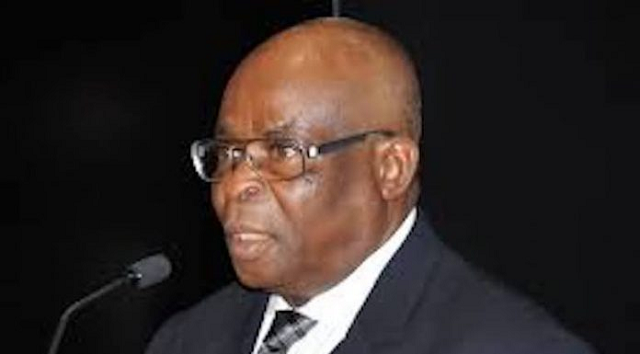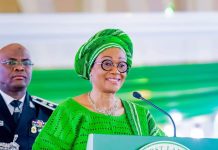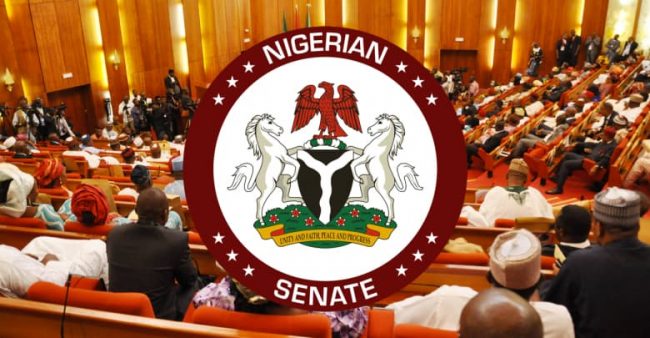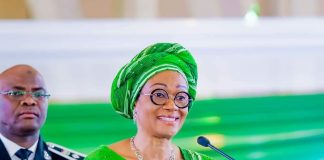The Chief Justice of Nigeria, Justice Walter Onnogen, has appeared before a Technical Committee set up by the Senate to revive 17 Bills that were refused assent by President Muhammadu Buhari to explain why he advised the President to decline assent to some of the Bills.
Although it is on record that no Chief Justice has ever appeared before any Senate committee in the past, Justice Onnogen appeared before the Committee in company of the Executive Secretary of the National Judicial Council (NJC), Ahmed Gambo Saleh, Federal Judicial Service Commission (FJSC) Executive Secretary, Bassey Eleng Bassey, Chief Registrar of the Supreme Court, Hadizatu Uwani Mustapha, among others.
Chairman of the Committee, Senator David Umoru (Niger East), in his opening remarks disclosed that President Buhari cited advice of the CJN as what he relied upon to decline assent to Constitution (4th Alteration) Act. No.22, which seeks to strengthen the judiciary for speedy dispensation of Justice.
Umoru told Jusice Onnogen: “Your Lordship, this committee on behalf of the Senate and by extension, the National Assembly wants to hear from you directly on why you advised the President refusing assent to the bill.
“We believe that information made available to us via his letter of refusal of assent on account of advice given by your lordship is also available to you.”
As the Chief Justice made to respond, the Committee chairman ordered journalists, aides and protocol officers to the CJN out of the Committee Room to allow for closed door session which lasted for about about two hours.
At the end of the session, attempts made to get clarifications from the CJN by journalists on what transpired at the closed door session was unsuccessful as he refused to speak with newsmen.
Although the Committee Chairman said President Buhari directed Attorney General of the Federation and the Minister of Justice, Abubakar Malami (SAN), to interface with the CJN to remedy the defects in the bill to strengthen the judiciary, neither Malami nor his representative was at the meeting.
Apart from the CJN, representatives of the Governor of the Central Bank of Nigeria, Chairman of Federal Inland Revenue Services (FIRS) and Post Master General of the Federation, also had closed door session with the committee on how rejected Stamp Duties (Amendment) Bill, 2018 can be redrafted and forwarded to the President for assent.
President Buhari had in his letter of refusal of assent to the Bill forwarded to both chambers of the National Assembly said the Bill’s proposals for the imposition of stamp duties on savings accounts and electronic transactions may impair the implementation of the federal government’s Financial Inclusion Strategy, e-payment programmes and cashless banking policies.
Umoru explained that the technical committee will meet with heads of other government establishments and the Attorney General of the Federation next week to fashion out how to rectify the remaining 15 bills refused assents by the President.












